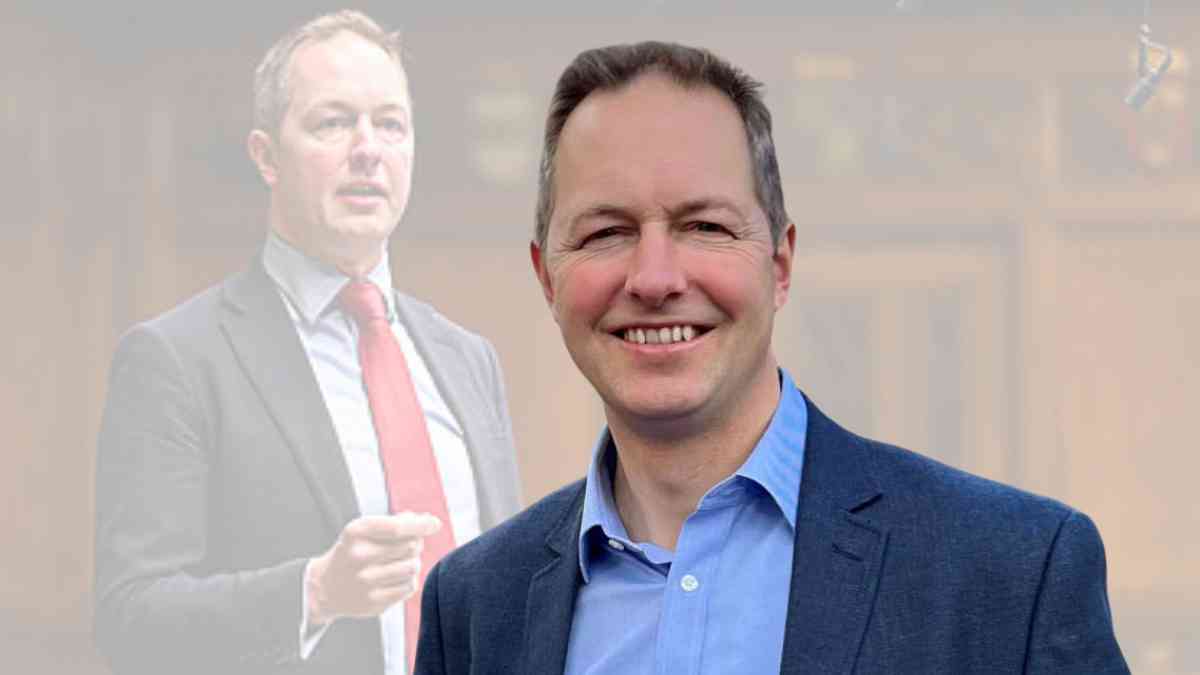Richard Foord: From Army Major to Champion of Rural Britain in Parliament

Richard Foord has rapidly become a recognized name in British politics, especially among those advocating for rural rights, defense accountability, and accessible healthcare. A former British Army Major and now a Liberal Democrat Member of Parliament, Foord represents a rare blend of military discipline, academic insight, and grassroots activism. His journey from the battlefield to the House of Commons is not just inspiring—it’s symbolic of a modern-day public servant determined to bring change where it matters most.
Early Life and Education
Richard John Foord was born in 1978. Raised in a modest household, he developed a strong sense of duty and resilience early on, values that would shape his future endeavors. He pursued a Bachelor’s degree in History from Royal Holloway, University of London, and later earned an MSc in Global Security from Cranfield University. Complementing his academic pursuits, he also completed an MBA from the Open University, a qualification that would later support his work in policy and governance.
Military Career: A Foundation of Leadership
Before politics, Richard Foord served in the British Army from 2001 to 2010, reaching the rank of Major. His military career included deployments to Iraq, the Balkans, and Kosovo, where he participated in NATO and UN peacekeeping missions. These experiences gave him a first-hand understanding of global conflict zones, defense logistics, and international diplomacy—areas that would later influence his political positions.
Foord’s military service stands out in an age where fewer MPs come with frontline experience. This background has allowed him to engage on defense issues with authority and real-world insight, making him a credible and thoughtful voice in Parliament on matters of national security and veterans’ welfare.
Transition to Civilian Life and Academic Work
After retiring from active duty, Foord transitioned into civilian roles with significant impact. He worked at the University of Exeter and later at Oxford University, where he contributed to international development and export control. These roles honed his understanding of education policy, research funding, and international relations.
His work in academia reinforced his belief in evidence-based policymaking and cross-border collaboration—two principles that now define his political ethos. His career before Westminster demonstrates that his public service commitment did not end with his military tenure.
Entry into Politics: Tiverton and Honiton By-Election Victory
In June 2022, Richard Foord made headlines by winning the Tiverton and Honiton by-election, overturning a significant Conservative majority. His victory was seen as a political earthquake and a critical moment for the Liberal Democrats, who positioned the win as evidence of public dissatisfaction with then-Prime Minister Boris Johnson’s leadership.
Running on a platform that emphasized rural healthcare, defending local services, and clean politics, Foord’s campaign resonated deeply with a constituency that felt neglected. He gained attention not only for the electoral upset but also for his calm demeanor and issue-focused narrative.
Parliamentary Work and Advocacy
Once in Parliament, Richard Foord wasted no time establishing himself as an active MP. He was appointed the Liberal Democrat Defence Spokesperson, a role where his military expertise became invaluable. He used this position to question the government on armed forces funding, veterans’ mental health services, and Britain’s international defense commitments.
In addition, Foord serves on the Foreign Affairs Select Committee, where he continues to advocate for responsible foreign policy and transparency in international agreements. His committee work reflects a deep interest in diplomatic relations and national resilience.
Championing Rural Britain
One of Foord’s most passionate political missions is representing the unique challenges faced by rural communities in the UK. As the MP for Honiton and Sidmouth (after boundary changes in 2024), he covers a vast and diverse area of East Devon, encompassing towns like Seaton, Ottery St Mary, and Axminster.
Foord has actively campaigned for:
-
Improved rural healthcare access, including reopening and saving Seaton Hospital.
-
Enhanced transport links, particularly sustainable and green travel options in the countryside.
-
Fairer broadband and mobile coverage for rural homes and businesses.
-
Legal protection for wild camping rights, particularly in Dartmoor, which he believes should remain accessible to all.
His consistent focus on local issues has earned him praise from constituents who often feel overlooked in Westminster politics.
Voting Record and Political Stance
As a Liberal Democrat, Richard Foord generally supports progressive policies, but his military past gives him a pragmatic approach to national defense. He has voted in line with:
-
Strengthening NHS funding, especially for underserved rural areas.
-
Environmental protection, with support for green initiatives and net-zero targets.
-
Public accountability, including voting in favor of investigations into political misconduct.
He also supports education reform, pushing for increased support to schools in rural regions, and promoting fairer funding models.
Personal Life and Values
Richard Foord lives in Uffculme, Devon, with his wife and three children. Despite his busy schedule, he is known for staying closely connected with his constituents. A qualified mountain leader and an avid outdoor enthusiast, he often uses his platform to promote environmental sustainability and physical wellbeing.
He has also participated in high-profile fundraising activities, including running the London Marathon in support of the Royal British Legion, underscoring his commitment to veteran welfare.
Foord is associated with organizations like Sustrans, which champions walking and cycling infrastructure. This fits well with his green credentials and desire to make rural communities more sustainable and connected.
Media and Public Engagement
Unlike many politicians who rely heavily on traditional media, Richard Foord has effectively used social media and town halls to communicate directly with the public. He maintains an open and transparent style of engagement, often responding to constituent concerns personally and addressing community issues with regular updates.
He is also vocal in the media about national political scandals, government accountability, and local economic resilience. His media appearances are measured but impactful, avoiding hyperbole and focusing on solutions rather than soundbites.
Legacy and Future Potential
Richard Foord is still relatively new in the world of parliamentary politics, but his rise has been significant. He has proven himself to be more than just a protest vote or by-election success story. Through his consistent work ethic, military-informed perspective, and rural advocacy, Foord is laying the foundation for a long and influential political career.
His ability to bridge the gap between national policy and local relevance makes him a potential future leader within the Liberal Democrats, or at the very least, a key voice in shaping the party’s stance on defense, rural policy, and civil services.
Conclusion
In a political landscape often filled with rhetoric and posturing, Richard Foord stands out as a principled, grounded, and proactive public servant. His life—from military leadership to academic stewardship and finally political engagement—reflects a trajectory of service driven by values, not vanity.
As the UK faces ongoing questions about defense strategy, rural development, and healthcare accessibility, Foord is positioned not only to ask the right questions but to push for meaningful answers. Whether you’re a political analyst, a concerned citizen, or simply someone interested in rising political figures, Richard Foord is a name worth following.



